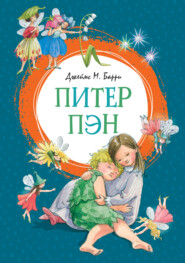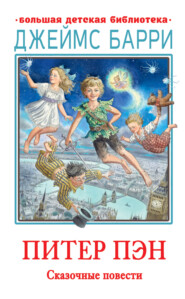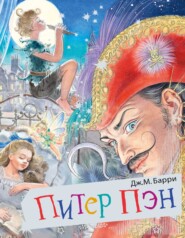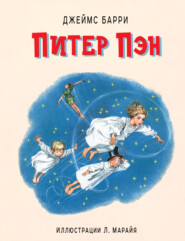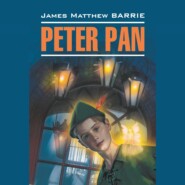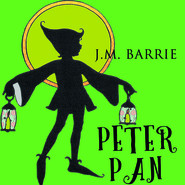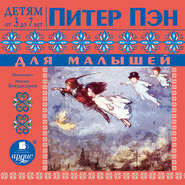По всем вопросам обращайтесь на: info@litportal.ru
(©) 2003-2025.
✖
When a Man's Single: A Tale of Literary Life
Автор
Год написания книги
2017
Настройки чтения
Размер шрифта
Высота строк
Поля
Rob, however, drank in the book, his brain filled with the writer of it. It was about a young girl who had given her heart to a stranger, and one day when she was full of the joy of his love he had disappeared. She waited, wondering, fearing, and then her heart broke, and her only desire was to die. No one could account for the change that came over her, for she was proud, and her relatives were not sympathetic. She had no mother to go to, and her father could not have understood. She became listless, and though she smiled and talked to all, when she went to her solitary bed-chamber she turned her face in silence to the wall. Then a fever came to her, and after that she had to be taken to the Continent. What shook her listlessness was an accident to her father. It was feared that he was on his deathbed, and as she nursed him she saw that her life had been a selfish one. From that moment she resolved if he got better (is it not terrible this, that the best of us try to make terms with God?) to devote her life to him, and to lead a nobler existence among the poor and suffering ones at home. The sudden death of a relative who was not a good man frightened her so much that she became ill again, and now she was so fearful of being untruthful that she could not make a statement of fact without adding 'I think so,' under her breath. She let people take advantage of her lest she should be taking advantage of them, and when she passed a cripple on the road she walked very slowly so that he should not feel his infirmity.
Years afterwards she saw the man who had pretended to love her and then ridden away. He said that he could explain everything to her, and that he loved her still; but she drew herself up, and with a look of ineffable scorn, told him that she no longer loved him. When they first met, she said, she had been little more than a child, and so she had made an idol of him. But long since the idol had crumbled to pieces, and now she knew that she had worshipped a thing of clay. She wished him well, but she no longer loved him. As Lord Caltonbridge listened he knew that she spoke the truth, and his eyes drooped before her dignified but contemptuous gaze. Then, concludes the author, dwelling upon this little triumph with a satisfaction that hardly suggests a heart broken beyond mending, he turned upon his heel, at last realising what he was; and, feeling smaller and meaner than had been his wont, left the Grange for the second and last time.
How much of this might be fiction, Rob was not in a mind to puzzle over. It seemed to him that the soul of a pure-minded girl had been laid bare to him. To look was almost a desecration, and yet it was there whichever way he turned. A great longing rose in his heart to see Mary Abinger again and tell her what he thought of himself now. He rose and paced the floor, and the words he could not speak last night came to his lips in a torrent. Like many men who live much alone, Rob often held imaginary conversations with persons far distant, and he denounced himself to this girl a score of times as he paced back and forwards. Always she looked at him in reply with that wonderful smile which had pleaded with him not to be unhappy on her account. Horrible fears laid hold of him that after the guests had departed she had gone to her room and wept. That villain Sir Clement had doubtless left the castle for the second and last time, 'feeling smaller and meaner than had been his wont' (Rob clenched his fists at the thought of him), but how could he dare to rage at the baronet when he had been as great a scoundrel himself? Rob looked about him for his hat; a power not to be resisted was drawing him back to Dome Castle.
He heard the clatter of crockery in the kitchen as he opened his door, and it recalled him to himself. At that moment it flashed upon him that he had forgotten to write any notice of Colonel Abinger's speech. He had neglected the office and come straight home. At any other time this would have startled him, but now it seemed the merest trifle. It passed for the moment from his mind, and its place was taken by the remembrance that his boots were muddy and his coat soaking. For the first time in his life the seriousness of going out with his hair unbrushed came home to him. He had hitherto been content to do little more than fling a comb at it once a day. Rob returned to his room, and, crossing to the mirror, looked anxiously into it to see what he was like. He took off his coat and brushed it vigorously.
Having laved his face, he opened his box, and produced from it two neckties, which he looked at for a long time before he could make up his mind which to wear. Then he changed his boots. When he had brushed his hat he remembered with anxiety some one on the Mirror's having asked him why he wore it so far back on his head. He tilted it forward, and carefully examined the effect in the looking-glass. Then forgetful that the sounds from the kitchen betokened the approach of breakfast, he hurried out of the house. It was a frosty morning, and already the streets were alive, but Rob looked at no one. For women in the abstract he now felt an unconscious pity, because they were all so very unlike Mary Abinger. He had grown so much in the night that the Rob Angus of the day before seemed but an acquaintance of his youth.
He was inside the grounds of Dome Castle again before he realised that he had no longer a right to be there. By fits and starts he remembered not to soil his boots. He might have been stopped at the lodge, but at present it had no tenant. A year before, Colonel Abinger had realised that he could not keep both a horse and a lodge-keeper, and that he could keep neither if his daughter did not part with her maid. He yielded to Miss Abinger's entreaties, and kept the horse.
Rob went on at a swinging pace till he turned an abrupt corner of the walk and saw Dome Castle standing up before him. Then he started, and turned back hastily. This was not owing to his remembering that he was trespassing, but because he had seen a young lady coming down the steps. Rob had walked five miles without his breakfast to talk to Miss Abinger, but as soon as he saw her he fled. When he came to himself he was so fearful of her seeing him, that he hurried behind a tree, where he had the appearance of a burglar.
Mary Abinger came quickly up the avenue, unconscious that she was watched, and Rob discovered in a moment that after all the prettiest thing about her was the way she walked. She carried a little basket in her hand, and her dress was a blending of brown and yellow, with a great deal of fur about the throat. Rob, however, did not take the dress into account until she had passed him, when, no longer able to see her face, he gazed with delight after her.
Had Rob been a lady he would probably have come to the conclusion that the reason why Miss Abinger wore all that fur instead of a jacket was because she knew it became her better. Perhaps it was. Even though a young lady has the satisfaction of feeling that her heart is now adamant, that is no excuse for her dressing badly. Rob's opinion was that it would matter very little what she wore, because some pictures look lovely in any frame, but that was a point on which he and Miss Abinger always differed. Only after long consideration had she come to the conclusion that the hat she was now wearing was undoubtedly the shape that suited her best, and even yet she was ready to spend time in thinking about other shapes. What would have seemed even more surprising to Rob was that she had made up her mind that one side of her face was better than the other side.
No mere man, however, could ever have told which was the better side of Miss Abinger's face. It was a face to stir the conscience of a good man, and make unworthy men keep their distance, for it spoke first of purity, which can never be present anywhere without being felt. All men are born with a craving to find it, and they never look for it but among women. The strength of the craving is the measure of any man's capacity to love, and without it love on his side would be impossible.
Mary Abinger was fragile because she was so sensitive. She carried everywhere a fear to hurt the feelings of others, that was a bodkin at her heart. Men and women in general prefer to give and take. The keenness with which she felt necessitated the garment of reserve, which those who did not need it for themselves considered pride. Her weakness called for something to wrap it up. There were times when it pleased her to know that the disguise was effective, but not when it deceived persons she admired. The cynicism of The Scorn of Scorns was as much a cloak as her coldness, for she had an exquisite love of what is good and fine in life that idealised into heroes persons she knew or heard of as having a virtue. It would have been cruel to her to say that there are no heroes. When she found how little of the heroic there was in Sir Clement Dowton she told herself that there are none, and sometimes other persons had made her repeat this since. She seldom reasoned about things, however, unless her feelings had been wounded, and soon again she was dreaming of the heroic. Heroes are people to love, and Mary's idea of what love must be would have frightened some persons from loving her. With most men affection for a woman is fed on her regard for them. Greatness in love is no more common than greatness in leading armies. Only the hundredth man does not prefer to dally where woman is easiest to win; most finding the maids of honour a satisfactory substitute for the princess. So the boy in the street prefers two poor apples to a sound one. It may be the secret of England's greatness.
On this Christmas Day Mary Abinger came up the walk rapidly, scorning herself for ever having admired Sir Clement Dowton. She did everything in the superlative degree, and so rather wondered that a thunderbolt was not sent direct from above to kill him – as if there were thunderbolts for every one. If we got our deserts most of us would be knocked on the head with a broomstick.
When she was out of sight, Rob's courage returned, and he remembered that he was there in the hope of speaking to her. He hurried up the walk after her, but when he neared her he fell back in alarm. His heart was beating violently. He asked himself in a quaver what it was that he had arranged to say first.
In her little basket Mary had Christmas presents for a few people, inhabitants of a knot of houses not far distant from the castle gates. They were her father's tenants, and he rather enjoyed their being unable to pay much rent, it made them so dependent. Had Rob seen how she was received in some of these cottages, how she sat talking merrily with one bed-ridden old woman whom cheerfulness kept alive, and not only gave a disabled veteran a packet of tobacco, but filled his pipe for him, so that he gallantly said he was reluctant to smoke it (trust an old man for gallantry), and even ate pieces of strange cakes to please her hostesses, he would often have thought of it afterwards. However, it would have been unnecessary prodigality to show him that, for his mind was filled with the incomparable manner in which she knocked at doors and smiled when she came out. Once she dropped her basket, and he could remember nothing so exquisite as her way of picking it up.
Rob lurked behind trees and peered round hedges, watching Miss Abinger go from one house to another, but he could not shake himself free of the fear that all the world had its eye on him. Hitherto not his honesty but its bluntness had told against him (the honesty of a good many persons is only stupidity asserting itself), and now he had not the courage to be honest. When any wayfarers approached he whistled to the fields as if he had lost a dog in them, or walked smartly eastward (until he got round a corner) like one who was in a hurry to reach Silchester. He looked covertly at the few persons who passed him, to see if they were looking at him. A solitary crow fluttered into the air from behind a wall, and Rob started. In a night he had become self-conscious.
At last Mary turned homewards, with the sun in her face. Rob was moving toward the hamlet when he saw her, and in spite of himself he came to a dead stop. He knew that if she passed inside the gates of the castle his last chance of speaking to her was gone; but it was not that which made him keep his ground. He was shaking as the thin boards used to do when they shot past his circular saw. His mind, in short, had run away and left him.
On other occasions Mary would not have thought of doing more than bow to Rob, but he had Christmas Day in his favour, and she smiled.
'A happy Christmas to you, Mr. Angus,' she said, holding out her hand.
It was then that Rob lifted his hat, and overcame his upbringing. His unaccustomed fingers insisted on lifting it in such a cautious way that, in a court of law, it could have been argued that he was only planting it more firmly on his head. He did not do it well, but he did it. Some men would have succumbed altogether on realising so sharply that it is not women who are terrible, but a woman. Here is a clear case in which the part is greater than the whole.
Rob would have liked to wish Miss Abinger a happy Christmas too, but the words would not form, and had she chosen she could have left him looking very foolish. But Mary had blushed slightly when she caught sight of Rob standing helplessly in the middle of the road, and this meant that she understood what he was doing there. A girl can overlook a great deal in a man who admires her. She feels happier. It increases her self-respect. So Miss Abinger told him that, if the frost held, the snow would soon harden, but if a thaw came it would melt; and then Rob tore out of himself the words that tended to slip back as they reached his tongue.
'I don't know how I could have done it,' he said feebly, beginning at the end of what he had meant to say. There he stuck again.
Mary knew what he spoke of, and her pale face coloured. She shrank from talking of The Scorn of Scorns.
'Please don't let that trouble you,' she said, with an effort. 'I was really only a schoolgirl when I wrote it, and Miss Meredith got it printed recently as a birthday surprise for me. I assure you I would never have thought of publishing it myself for – for people to read. Schoolgirls, you know, Mr. Angus, are full of such silly sentiment.'
A breeze of indignation shook 'No, no!' out of Rob, but Mary did not heed.
'I know better now,' she said; 'indeed, not even you, the hardest of my critics, sees more clearly than I the – the childishness of the book.'
Miss Abinger's voice faltered a very little, and Rob's sufferings allowed him to break out.
'No,' he said, with a look of appeal in his eyes that were as grey as hers, 'it was a madness that let me write like that. The Scorn of Scorns is the most beautiful, the tenderest – ' He stuck once more. Miss Abinger could have helped him again, but she did not. Perhaps she wanted him to go on. He could not do so, but he repeated what he had said already, which may have been the next best thing to do.
'You do surprise me now, Mr. Angus,' said Mary, light-hearted all at once, 'for you know you scarcely wrote like that.'
'Ah, but I have read the book since I saw you,' Rob blurted out, 'and that has made such a difference.'
A wiser man might have said a more foolish thing. Mary looked up smiling. Her curiosity was aroused, and at once she became merciless. Hitherto she had only tried to be kind to Rob, but now she wanted to be kind to herself.
'You can hardly have re-read my story since last night,' she said, shaking her fair head demurely.
'I read it all through the night,' exclaimed Rob, in such a tone that Mary started. She had no desire to change the conversation, however; she did not start so much as that.
'But you had to write papa's speech?' she said.
'I forgot to do it,' Rob answered awkwardly. His heart sank, for he saw that here was another cause he had given Miss Abinger to dislike him. Possibly he was wrong. There may be extenuating circumstances that will enable the best of daughters to overlook an affront to her father's speeches.
'But it was in the Mirror. I read it,' said Mary.
'Was it?' said Rob, considerably relieved. How it could have got there was less of a mystery to him than to her, for Protheroe had sub-edited so many speeches to tenants that in an emergency he could always guess at what the landlords said.
'It was rather short,' Mary admitted, 'compared with the report in the Argus. Papa thought – ' She stopped hastily.
'He thought it should have been longer?' asked Rob. Then before he had time to think of it, he had told her of his first meeting with the colonel.
'I remember papa was angry at the time,' Mary said, 'but you need not have been afraid of his recognising you last night. He did recognise you.'
'Did he?'
'Yes; but you were his guest.'
Rob could not think of anything more to say, and he saw that Mary was about to bid him good-morning. He found himself walking with her in the direction of the castle gates.
'This scenery reminds me of Scotland,' he said.
'I love it,' said Mary (man's only excellence over woman is that his awe of this word prevents his using it so lightly), 'and I am glad that I shall be here until the season begins.'
Rob had no idea what the season was, but he saw that some time Mary would be going away, and his face said, what would he do then?
'Then I go to London with the Merediths,' she continued, adding thoughtfully, 'I suppose you mean to go to London, Mr. Angus? My brother says that all literary men drift there.'
'Yes, oh yes,' said Rob.
'Soon?'
'Immediately,' he replied recklessly.
They reached the gates, and, as Mary held out her hand, the small basket was tilted upon her arm, and a card fluttered out.







